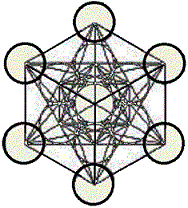 Preface
for the Child of God
Preface
for the Child of God
My greatest insight about the saying, "Learn what this means, I will have mercy; not sacrifice," came by way of a very nasty dog. She was determined to bite me every time I was around her, which was way too often. Had she been mine when the old man in me was in charge, I'd have carted her off to the animal shelter to be put down with barely a second thought. She was a very nasty dog.
One day I'd simply had enough of her. I'd tried everything I could think of, and nothing had won her over or made her lose interest in going after whatever part of me was most accessible. She had it in her mind that she was going to bite me, and she knew that I knew it and that I could mount no socially acceptable defense. When I was away, I'm certain that she looked forward to the resumption of our acrimonious game. She had made a believer of me: regardless of any countermeasure I might mount, she was going to bite me. It had become her pleasure, nasty dog that she was.
I was already short-tempered and tired on the last day she bit me. She came at me for the last time, and I just didn't have the wherewithal to resist. If I had had more energy, I might have killed her; but worn out, I gave up all thought of defense or escape: truly, she had won! Not thinking, really, I met her snarling charge by extending my hand to her charge; and I just let her bite, and bite, and bite. Luckily for me, she was small nasty dog, and so her nasty teeth were small, also. I'd lost count of the number of bites when-- with my hand still in her maw-- she looked up at me out of the corner of her eyes and simply stopped. She may have been crestfallen; I don't remember, but it was clear to me that she'd been undone by the absence of my resistance. Her realization of that change was her undoing as a nasty dog, and it led to her transformation.
The thrill she used to have, wagging her tail while biting me, had disappeared; and it had taken the nasty old dog she had been with it. From the moment of that last bite, we became something like old friends who shared intimate history of the same battles, and her nastiness had been replaced with nostalgia. Her owner was so offended by the change in her personality that he persuaded me to make the unfaithful beast my own pet. These changes came because, at my wit's end, I had offered my hand to an offender in willing sacrifice.
The story seems to trivialize spiritual matters, but important precepts were involved. Concerning encounters with ungodly assaults against the spirit, teachings from the gospel and the epistles seem to differ. Y'shua taught that we are not to resist evil; for our enemies can do nothing against us, unless the Father permits it. To offer opposition, therefore, is lack of faith; and the just shall live by faith. The apostle James taught that if we resist evil, it will flee from us. Yes, and it will compound itself with other evil spirits, in preparation for its return! We are to take care, how we hear.
This is a book of testimony. In its early chapters, I make use of a great many scriptural references, both to explain my approach to scripture and to give vent to my frustrations with various orthodoxies. I had wanted to give my understandings some scriptural teeth, but those who understand John 5:39 have little need to quote scripture at all. I therefore considered taking that lawyerly element out of this digital edition, but decided against it.
There are two sorts of readers I had hoped the many references would discourage: the first are the hard-shell literalists, who pick and choose which writings are to be enforced exactly as written down, and which are to be taken with a grain of salt. Lacking in faith, I was foolishly defending myself against criticism from that quarter. The second group of readers I hoped to avoid is comprised of those who will read these pages primarily for their entertainment value, as if they are part of a novel, of sorts. They are, sort of; but these matters are not trivial; and the casual reader would do well to spend time elsewhere.
My decision to retain the arrogant practice of quasi-academic references stems from the fact that they were first incorporated in early editions of this work. Yes, their inclusion was, in part, preemptory defense; but it was also in answer to spiritual guidance I was receiving at the time. In their best light, the sections with copious citations reflect my understanding of the whirling swords that guard the way to Eden. Such posturing is bad enough, but there's worse. As proof of the validity of my witness, the references mask an attempt to construct a hedge against the blood guilt that would arise should I become the idol shepherd of some cult; for if readers should fall into a ditch because they ignored the guardrails of my footnotes, it would not be my fault!
We're not called to be doctors of divinity or masters of kabbalah, either one. We're called to know, even as we are known. Book knowledge has its place, but true knowledge is a measurement of spiritual reality; and such knowledge can be earned only upon the path of the cross, whatever a pilgrim's belief system might be (Matt. 8). Thank you for visiting with me through these many pages. I promise the reading gets easier as it gets harder.
|
site |
Golden Calves |
book |